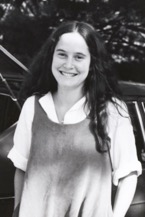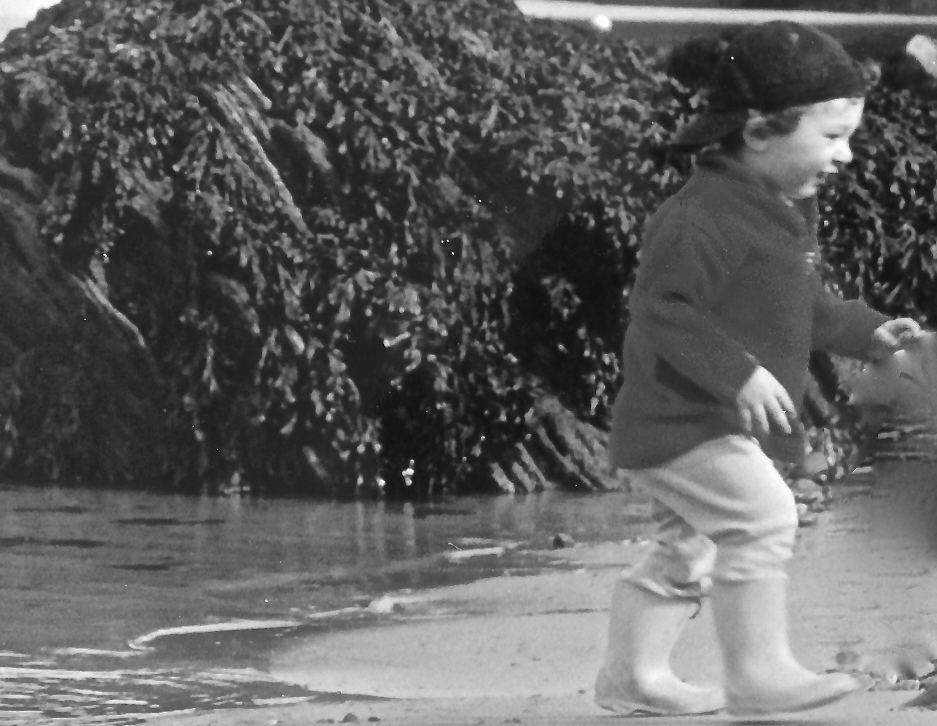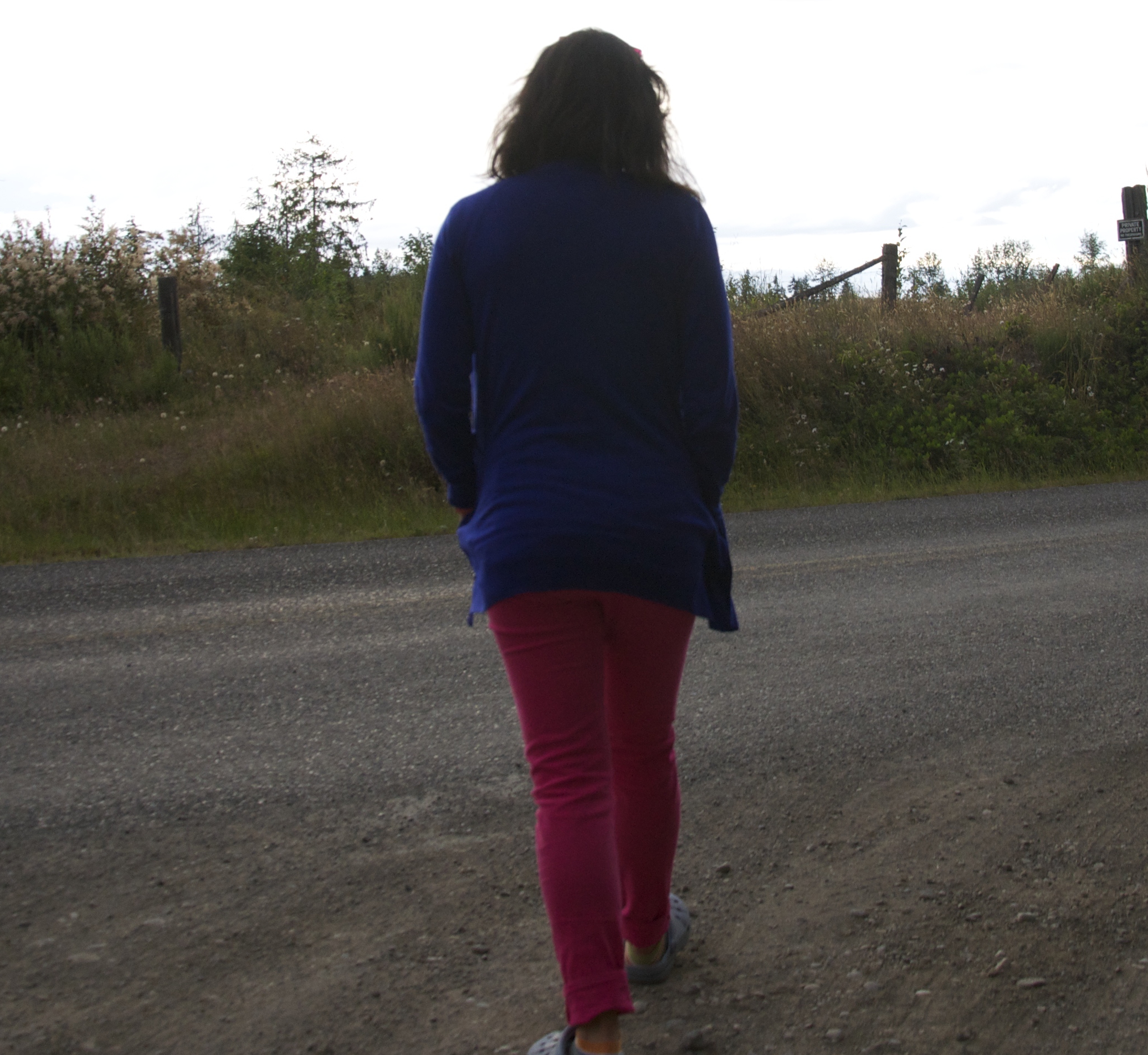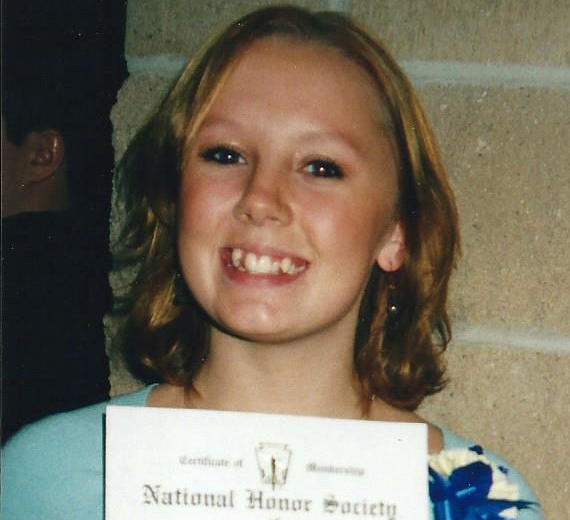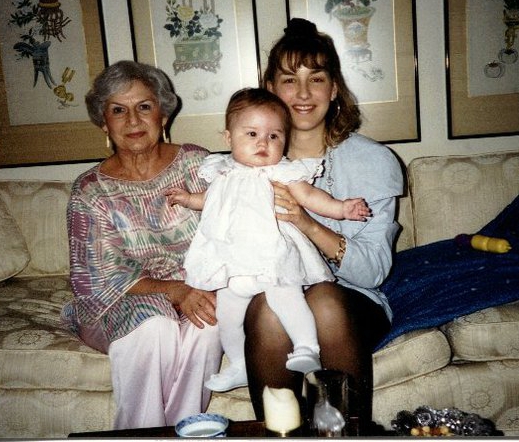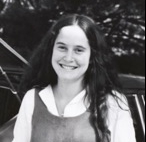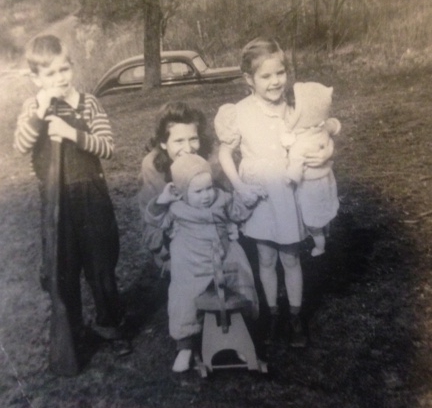“Find your place,” the loudspeaker rang out as thousands of people swarmed onto the Washington Mall. “What do we want?” the megaphones boomed. “Equal Rights!” we all shouted, fists thrust into the air. Dust stuck to my legs and arms as I looked out over the teeming crowd, my heart beating fast. How would I ever find Marty, my twin sister?
“Find your place,” the loudspeaker blared. “We start marching in an hour.”
An hour?
Under my breath, I whispered the words Marty had spoken on the phone when she called the previous weekend. “Let’s walk together,” she’d said. Along with a few other things...
It was the summer of 1978. Midway through my Master’s degree in Boston, I’d gone to live in DC with my boyfriend so he could work in a law firm. I was preparing for my Oral Exams and taking a publication design course. Marty had moved to Philly to work for Ma Bell. For a change, we were only two hours apart—nothing like the hundreds of miles that had separated us during high school and college. During those years, following our mother’s desire for us to forge our own identities, we’d gone our own ways. Being at different boarding high schools—I was near Philadelphia, and Marty was near Poughkeepsie, New York—had given us each our own space and also removed us from our mother’s struggle to raise five children after the death of our father when we were eight. Her struggle, for years, had especially weighed on me and Marty, who bore the brunt of our mother’s pain and anger in the form of her lashing out and punishments. When one of us messed up—forgetting a chore or not performing up to our mother’s standards—we never knew whether both of us would be punished or one praised while the other was spanked and banished, a dynamic that complicated our allegiance to each other. In college, when Marty was in Pittsburgh and I was in Northampton, Massachusetts and abroad for a year, we never visited each other at our respective campuses.
I remember my surprise when Marty called me a week before the March. Sitting in our little DC apartment surrounded by scraps of paper for a design assignment, I was excited to get her call and to hear she planned to attend the March, too. We hadn’t talked in a few months. I remember my heart swelling at the thought: my twin and I walking side by side. Two halves making a perfect whole.
But where would we meet in the vast crowd? Picturing the two of us running into each other’s arms at the historic Washington Monument or American History Museum, I suggested a few places, feeling so excited at the prospect, I almost didn’t hear her reply. “Come find me under the Philadelphia Gay Liberation banner,” she said. “I’ll be walking there.”
I can still feel my surprise, my shock. My twin was gay? My twin was gay? But I said nothing to her to give away my racing thoughts. Though it might seem hard to believe now, I didn’t know anyone back then who was “gay.” I’d never used the word before.
When I hung up, I must have stood staring at the phone for so long that it alerted my boyfriend. “Is something wrong?” he asked. I was quick to say no—not ready to share this new secret or my swelling pride. My twin and I would be walking together, gay and straight, making history on this most important day. Or perhaps it was this other shock that kept me frozen in place. My twin was gay? Why didn’t I know this before?
On the morning of the march, I awoke early, leaving my boyfriend still asleep in our bed. The previous night, he’d asked if I wanted him to walk with me. He’d seemed almost relieved when I said I wanted to walk with only my twin. I didn’t tell him how it seemed only right to me that women would walk in this women’s march. Nor did I tell him my deeper fear—was it my having a boyfriend that had kept me and Marty apart?
As I walked through Dupont Circle and past the White House, mobs of people pressed around me. Like one teeming wave we stepped up onto the Mall under the watchful eye of the Washington Monument. Down the middle of the Mall stretching toward the Capitol, a wide grassy aisle had opened up between two endless columns of people—alliance groups on one side, states alphabetical on the other. I craned my neck as I decided to first search the alliance groups. I rehearsed in my head my carefully practiced words. “I’m looking for my twin sister,” I’d say first. Surely people would be charmed. Then as casually as asking for a tissue, a sip of water, the time of day, I’d ask my real question. “Have you seen the Philadelphia Gay Liberation?”
“Please find your place,” the megaphone blared. “We start marching in fifty minutes.
At every sign that interested me—Food for People Not for Profit, Save the Earth, Cyclers for Peace, Artists Unite—when I stopped to look, people waved and invited me in. So many choices, all tugging on me. I couldn’t help but wonder: which group would I walk with if I weren’t walking with Marty? I had planned all along to go to the March, but had no idea I’d have such an assortment of choices before me. But why even worry? I was there to walk with my gay twin sister. “To make history,” I wanted to call out to the world. But when I passed the Smith College banner and saw so many women I’d known there, I held still. They were laughing, holding hands, kissing.
Kissing?
Suddenly I remembered the dorm friends who’d given me backrubs, their fingers inching around my sides. How could I have been so clueless?
At the end of the alliance groups, I turned and looked back. Far away, now, where the alphabetical states began. I could have gone directly to P—Pennsylvania. Surely the Philadelphia Gay Liberation would be planted in the middle. But I knew I needed to start with A. To prove my valor, earn my place next to my twin, I had to be like the pioneers crossing the country from one side to another, over peak and through valley, across the wide divides.
Alabama, Alaska, Arkansas. No need to ask my questions here. Still I pushed through the dense crowds, my hands like a prying wedge. Excuse me. Excuse me. California, Colorado, Florida, Georgia. Louisiana, Maine, Montana, Nebraska, Nevada. No need to ask my questions in some of these places here, either, though still I pushed through as if people weren’t flesh and bones but rocks and chasms, night and day, snowstorms and deadly squalls.
In Pennsylvania, I burrowed into the very middle, stood on my toes, and scanned the bobbing heads of men and women of all sizes and colors. I looked for Marty’s brown wavy hair, her stout figure, so different from my skinny body and long curly hair looped up in a clasp. To whom would I ask my questions first? Two women my age, both with short hair, were talking nearby. “Excuse me,” I said. They turned quickly toward me, their eyes bright. “I’m looking for my twin sister.” They smiled. My heart raced. I took a big breath. “Have you seen the Philadelphia Gay Liberation?”
Their answer came so fast. Too fast. “No. Sorry.”
Were they really sorry?
“Find your place,” the megaphone boomed. “We start walking in half an hour.
Rhode Island, South Carolina, Texas, Washington. West Virginia. I pressed on, knowing it more and more pointless to ask my questions, and yet compelled to ask anyway. “I’m looking for my twin sister,” I said a thousand times, it seemed. A thousand smiles. A thousand pairs of eyes meeting mine. “Have you seen the Philadelphia Gay Liberation?”
“No.” “Not here.” “No.”
“Why not?” I wanted to cry out in reply. Why not?
Beyond Wyoming, I stopped to gaze at the open space between me and the Reflecting Pool. I tipped my head back to drink some water. Maybe the bus broke down. It could be that simple, couldn’t it? Anything to push away my greatest fear that at the last minute, Marty had decided not to come. Would she do that? Decide it was too much to face me under her new banner? I swallowed hard at the dust grabbing my throat.
I stared at the one remaining spectacle beyond the lines of people—a tall young man propping himself up high against the fork of a tree, strapping on his tall stilts, rolling down his long red and white striped Uncle Sam pants. As he adjusted his tall black hat and pushed off, his whole body lunging with his giant steps, around him, a circle of photographers, their long phallic lenses hanging, clicked photo after photo. I heard myself whisper in outrage. “Does this guy think he’s going to lead our march?” I wanted to scream out to the photographers—all men, “Why are you more interested in this man on stilts than the thousands of women getting ready to march? Pay attention to the women,” I wanted to call out, noticing only then a distant group of women clustered on the ground, kneeling over a banner. As I looked, one of the women stood up and cupped her hand around her mouth. “Jody,” she called. “Jody!”
I almost turned away. Tall. Lanky. Cropped brown hair. I’d never seen her before. But she waved with such determined force, I stood and watched until I saw her lean over and pull at the white shirt of a woman crouched on the ground.
Did the photographers catch me running toward Marty and record for posterity not Uncle Sam but the joy of two halves making a whole? Women making history? Marty pulled me tight into her open arms as if we’d never been apart.
“Hey, everybody,” she said as she let go. “This is my twin. Jody.” Her eyes lit up. The women all pushed forward to hug or shake my hand. “But you don’t look like her,” they exclaimed, rowdy until Marty reached for the hand of the tall woman who’d called my name. “This is Maggie,” Marty said, looking right at me. Maggie reached out for my hand, her grasp full and firm.
“You look just like your picture,” she said smiling. “I’ve heard so much about you.”
I felt my heart stop. Marty had showed her my picture? Talked about me?
But there was no time to dally. “We need to fix our banner so it doesn’t buckle,” Marty said. “Who has a jackknife?”
From my backpack, I proudly pulled the Swiss Army knife that our father gave me on my eighth birthday, the month before he died. My knife, exactly like the knife our father also gave Marty. But I didn’t stop to wonder—where was Marty’s knife? I was too excited to be the one who could hand Marty the very tool she needed to slice their banner so the wind would go through it and we could walk in this historic march. “Hurray for the Philadelphia Gay Liberation!” the women cheered as they lifted the banner, stretched it out, and fell into place, Marty and Maggie in the very middle.
“Well?” Marty said. She held the closed knife out to me, not to hand it over but to pull me in. “You ready?” she asked.
I had planned to step in right beside her. To walk wherever she walked, just as I had when we played baseball as kids, or when I tried to comfort her in the face of our mother’s punishments. Or when in sixth grade I slapped a boy for taunting her. (He punched me so hard in the stomach in return, I cried all the way home.) But my feet wouldn’t move. What was holding me back? I looked up at their banner, thought of all the choices I’d already seen. Who was I? Under what label would I walk? More fiercely than I ever expected, I heard myself thinking. I didn’t want a label. Certainly not this one. What if someone I knew saw me walking under this banner?
Surely my words came out with difficulty. “I promised my friends in Boston I’d walk with them,” I lied.
Marty looked right at me with her small brown eyes, the one thing she and I shared.
“If I don’t show up, my friends will think I’m lost. Lost!” I said, my voice ringing in the air.
As she stared at me, she said nothing. Nothing until Maggie squeezed her hand and let go. By herself, Marty stepped forward and wrapped her arms around me. Always a little shorter, I hugged her under her arms, waiting to hear her comforting words in my ear. Surely she understood my need to choose for myself.
But there was only silence until these lousy words found their way across my lips. “Catch you later,” I said, as if in this massive crowd we would find each other again.
I have no idea if she watched me walk away or saw me slip into Massachusetts. I only know that when I found a place to stand, the woman beside me, uncertain how far to move over, asked if I was solo. I didn’t know how to answer.
Jody Lisberger’s stories have been published in Fugue, Michigan Quarterly Review, Confrontation, Louisville Review, Timberline Review, The Fem, and Thema and have also won prizes at Quarterly West (finalist) and American Literary Review (third). Her 2008 story collection Remember Love was nominated for a National Book Award. She is currently revising a novel and assembling a story-novella collection called House Pets and Other People. She’s on the fiction faculty of the low residency MFA in Writing Program at Spalding University (Louisville) and lives in Rhode Island where she’s also an Associate Professor in Gender and Women’s Studies at the University of Rhode Island.
